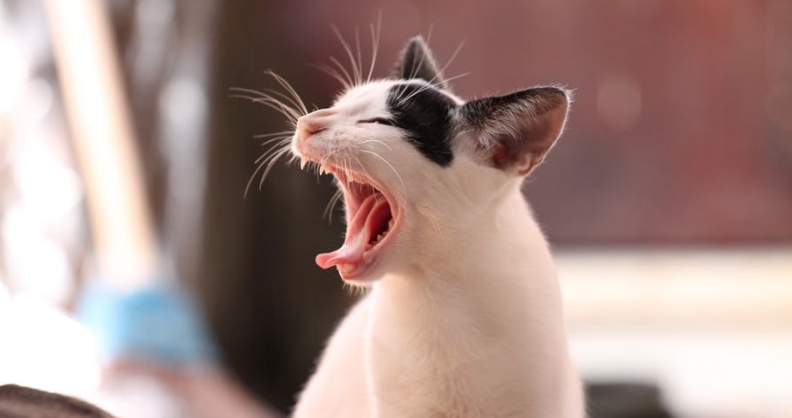
As your cat reaches adulthood, keeping an extra close eye on their teeth is important as dental problems become more common. Subtle signs of mouth issues, exhibited by cats, often do not show the true extent of their pain. The three most common dental issues that a cat may experience are periodontal disease, tooth resorption, and stomatitis. All three of these can leave your feline friend in chronic pain, which could lead to infection, potentially affect their entire system.
Periodontal Disease
– Gums become inflamed & infected
– Can eventually lead to:
* receding gums
* bone loss in mouth
* infection of the roots of teeth
Tooth Resorption
– lesions in the teeth (cavity like)
– pulp of tooth can become exposed
– teeth may break off
Stomatitis
– mouth inflammation:
* gums
* can extend to the back of mouth
* along the sides of the tongue
Signs of Dental Issues in Cats
– bad breath – gum inflammation – bleeding gums
– buildup of tartar – drooling – saliva around the mouth
– poor appetite – swallows food whole – picky eater (prefers canned)
– drops food – weight loss – matted hair (hurts to groom)
– chatters teeth – smacks lips – paws face
– swollen face – nasal discharge – sneezing
– withdrawn – more aggressive – avoids rubbing cheek
– hiding increases
What to Do
If your cat already suffers from dental issues, see your vet. In later stages of these conditions, many or all teeth will typically need to be extracted. Although extracting your cat’s teeth does not sound pleasant, for those cats that do suffer from these conditions, it can create a huge improvement in how they feel.
To help prevent any of these dental issues…
– do a sensitivity scan and eliminate all sensitive foods from your cat’s diet
– elimate foods cats don’t need, such as carbs & starches
– reduce inflammation through the use of fatty acids (ex. fish oil)
– give your cat a probiotic
– reduce environmental toxins such as cleaning supplies, lawn chemicals, & consider limiting or spacing out vaccines
Are you concerned about sensitivities or stress in the body of your feline friend. If so, contact PetMedella at 612-812-9121 or email us at info@petmedella.com.
